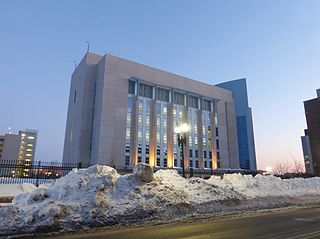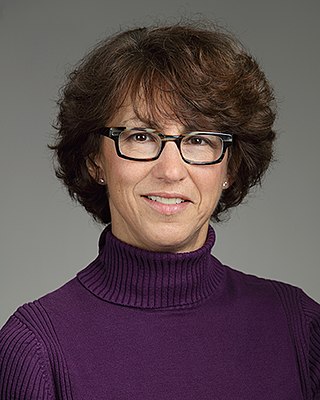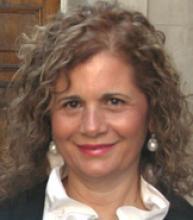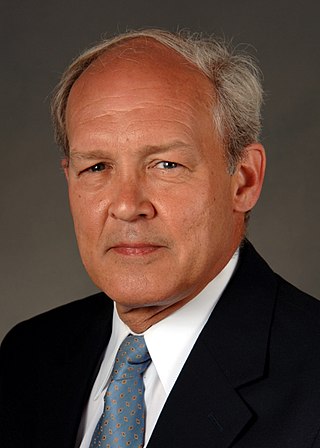The National Institute of Allergy and Infectious Diseases is one of the 27 institutes and centers that make up the National Institutes of Health (NIH), an agency of the United States Department of Health and Human Services (HHS). NIAID's mission is to conduct basic and applied research to better understand, treat, and prevent infectious, immunologic, and allergic diseases.
VaxGen was a biopharmaceutical company based in the San Francisco Bay Area.

The National Emerging Infectious Diseases Laboratories (NEIDL), is a biosciences facility of Boston University located on Albany street, within the clinical and biopharma hub of the South End neighborhood of Boston, Massachusetts.

The Vaccine Research Center (VRC), is an intramural division of the National Institute of Allergy and Infectious Diseases (NIAID), part of the National Institutes of Health (NIH), US Department of Health and Human Services (HHS). The mission of the VRC is to discover and develop both vaccines and antibody-based products that target infectious diseases.

ZMapp is an experimental biopharmaceutical drug comprising three chimeric monoclonal antibodies under development as a treatment for Ebola virus disease. Two of the three components were originally developed at the Public Health Agency of Canada's National Microbiology Laboratory (NML), and the third at the U.S. Army Medical Research Institute of Infectious Diseases; the cocktail was optimized by Gary Kobinger, a research scientist at the NML and underwent further development under license by Mapp Biopharmaceutical. ZMapp was first used on humans during the Western African Ebola virus epidemic, having only been previously tested on animals and not yet subjected to a randomized controlled trial. The National Institutes of Health (NIH) ran a clinical trial starting in January 2015 with subjects from Sierra Leone, Guinea, and Liberia aiming to enroll 200 people, but the epidemic waned and the trial closed early, leaving it too statistically underpowered to give a meaningful result about whether ZMapp worked.

cAd3-ZEBOV was an experimental vaccine for two ebolaviruses, Ebola virus and Sudan virus, developed by scientists at GlaxoSmithKline (GSK) and tested by National Institute of Allergy and Infectious Disease (NIAID). This vaccine is derived from a chimpanzee adenovirus, Chimp Adenovirus type 3 (ChAd3), genetically engineered to express glycoproteins from the Zaire and Sudan species of ebolavirus to provoke an immune response against them. Simultaneous phase 1 trials of this vaccine commenced in September 2014, being administered to volunteers in Oxford and Bethesda. During October the vaccine is being administered to a further group of volunteers in Mali. If this phase is completed successfully, the vaccine will be fast tracked for use in the Ebola virus epidemic in West Africa. In preparation for this, GSK is preparing a stockpile of 10,000 doses.
Kathryn Mary Chaloner was a British-born American statistician.

There is a cure for the Ebola virus disease that is currently approved for market the US government has inventory in the Strategic National Stockpile. For past and current Ebola epidemics, treatment has been primarily supportive in nature.

Julie E. Ledgerwood is an American allergist and immunologist, who is the chief medical officer and chief of the Clinical Trials Program at the Vaccine Research Center (VRC) of the National Institute of Allergy and Infectious Diseases (NIAID), part of the National Institutes of Health in Bethesda, Maryland. She is a Doctor of Osteopathic Medicine.
Susan S. Ellenberg is an American statistician specializing in the design of clinical trials and in the safety of medical products. She is a professor of biostatistics, medical ethics and health policy in the Perelman School of Medicine at the University of Pennsylvania. She was the 1993 president of the Society for Clinical Trials and the 1999 President of the Eastern North American Region of the International Biometric Society.
John Eugene Bennett is an American physician-scientist. He is a senior investigator in the clinical mycology section in the intramural research program at the National Institute of Allergy and Infectious Diseases.

Emily J. Erbelding is an American physician-scientist. She is the director of the Division of Microbiology and Infectious Diseases at the National Institute of Allergy and Infectious Diseases (NIAID). Erbelding was previously deputy director of the Division of AIDS at NIAID. She was a faculty member at Johns Hopkins School of Medicine and served as director of clinical services for the Baltimore City Health Department STD/HIV program.

Emmie de Wit is a Dutch-American virologist. She is chief of the molecular pathogenesis unit at the Rocky Mountain Laboratories. Her research combines pathogenesis studies with detailed molecular analyses to identify molecular determinants of severe respiratory tract disease within the virus and the host.

Nancy Jean Sullivan is an American cell biologist researching filovirus immunology and vaccine development. She is a senior investigator and chief of the biodefense research section at the Vaccine Research Center. Her team discovered the monoclonal antibody, mAb114.

Patrizia Farci is an Italian scientist and hepatologist. She is chief of the hepatic pathogenesis section at the National Institute of Allergy and Infectious Diseases. Farci conducts translational research in the field of liver diseases, particularly in the study of pathogenesis of acute and chronic viral hepatitis. She was previously a full professor of medicine and director of the liver unit and the postgraduate school of gastroenterology at the University of Cagliari.

Catharine "Katy" Mans Bosio is an American biologist. She is a senior investigator and chief of the immunity to pulmonary pathogens section at the National Institute of Allergy and Infectious Diseases.

Heinz (Heinrich) Ulrich Feldmann is a German-American virologist who currently serves as the chief of the laboratory of virology at Rocky Mountain Laboratories, NIAID and heads the Disease Modelling and Transmission section. His research focuses on highly pathogenic viruses that require strict biocontainment, including those that cause viral hemorrhagic fever such as Ebola and Lassa. He has been responsible for the development of timely viral countermeasures including the rVSV-ZEBOV vaccine (Ervebro), development of vaccines and drugs against SARS-CoV-2, and epidemiology of SARS-CoV.

Adah Elizabeth Verder was an American medical bacteriologist and science administrator. She was a researcher in the National Institute of Allergy and Infectious Diseases' (NIAID) intramural research program specialized in gastrointestinal flora and staphylococci, pseudomonas, and pleuropneumonia organisms. Verder later served as chief of the bacteriology and mycology branch in the extramural division of NIAID. She was a fellow of several societies including the American Association for the Advancement of Science, American Public Health Association, American Academy of Microbiology, and the New York Academy of Sciences.

Hugh Auchincloss, Jr. is an American immunologist and physician serving as the acting director of the National Institute of Allergy and Infectious Diseases since 2023. He previously served as the principal deputy director between 2006 and 2022. He was previously a transplant surgeon and professor of surgery at Harvard Medical School, and researched at Massachusetts General Hospital for 17 years.

John R. Mascola is an American physician-scientist, immunologist and infectious disease specialist. He was the director of the Vaccine Research Center (VRC), part of the National Institute of Allergy and Infectious Diseases (NIAID), National Institutes of Health (NIH). He also served as a principal advisor to Anthony Fauci, director of NIAID, on vaccines and biomedical research affairs. Mascola is the current Chief Scientific Officer for ModeX Therapeutics.















